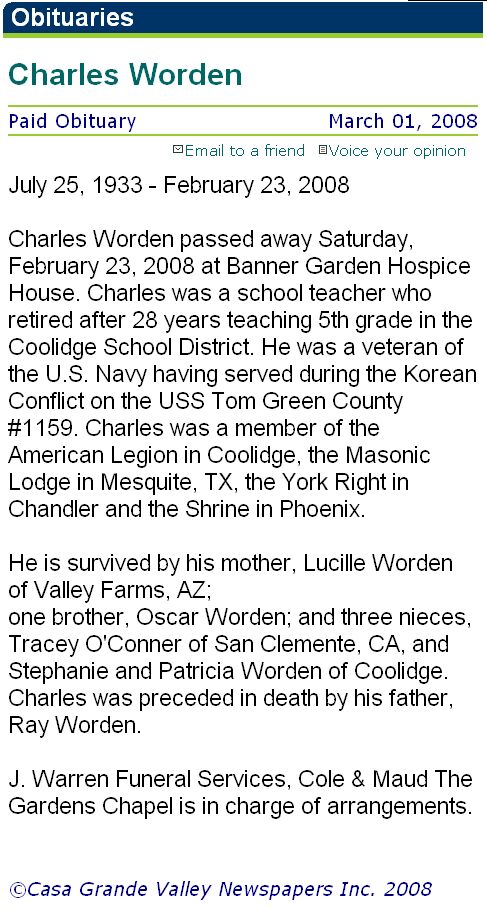
Herbert's Pledge of Allegiance
Herbert, the new kid, entered a Coolidge, Arizona fifth-grade classroom with two significant
impediments to a ten-year-old's upward mobility:
Though in passed notes we often referred to the large man at the front of the classroom as The Warden, he was actually a pretty genial, easygoing fellow -- as long as no one in his class was chewing gum, passing notes, or denigrating the flag of the United States of America. At his desk Charles Worden kept a long, thin, wooden paddle named Gertrude, which he had made himself, wrapping it in black electrical tape and hand-drilling its dozens of holes that made the terrifying whooooooosh sound as The Warden's large, tatooed forearm brought it down upon one's backside. "Boy-ah -- you got a date with Gertrude!" he would say -- and said then for the first (and, not surprisingly, not the last) time to poor Herbert, who followed the big man outside to begin his first day in a new school with a series of loud swats. (That day Herbert & I became fast friends. That's me, in my classiest pair of red socks, sitting next to Herbert in the class photo at the feet of Charlie Worden.) But perhaps Herbert was more sophisticated than he appeared. Perhaps Mr. Worden was overlooking the nuances of young Herbert's performance piece. Was our Herbert hinting at the collectivist origin of the pledge (and its original salute)? Was he subtly making the point that no one should pledge allegiance -- or be coerced to pledge allegiance -- either to a flag or the government for which it stands? That one's allegiance in the political realm should belong to liberty alone, and that when a nation departs from liberty, so should one's allegiance from that nation? That the "My Country, Right Or Wrong" attitude embodied in the pledge is precisely what has led otherwise good people to do wrong in the name of Nazism, Marxism, or even "Americanism" -- that nonsensical neologism whose renewed popularity in the 1950s helped get the "under god" bit added to the pledge? |

|
|
|
Sadly, the world may never learn Herbert's true position on these matters. Sadder still, we will soon learn the position of the U.S. Supreme Court justices, who are currently wasting their time and other people's money pretending to parse the constitutionality of that "under God" portion of the Pledge of Allegiance -- as if a pledge to a government could be constitutional, in whole or part. Herbert, wherever you are -- my money is on your interpretation. |

|
|
(See also: another contemporary perspective on the incident)

|
| |
|
